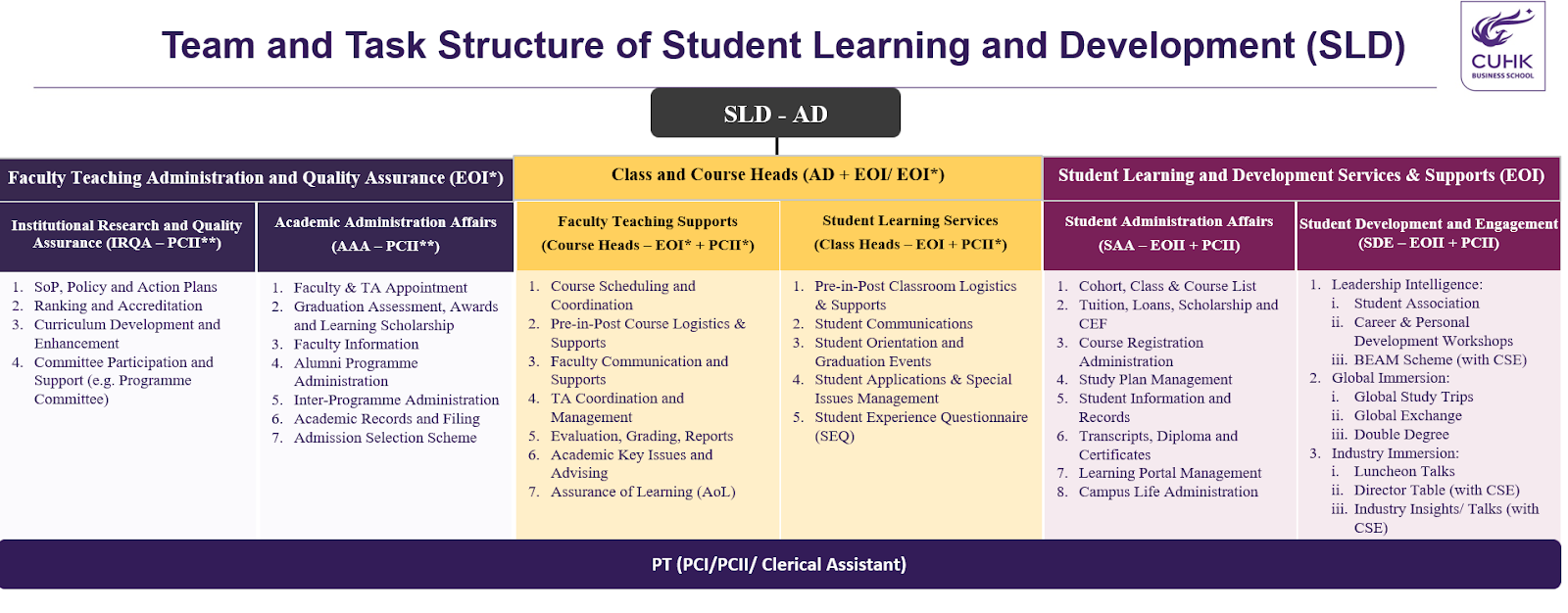Policy Ref: CA_OAPolicy003-Cabinets_2024MAR-19
THE CHINESE UNIVERSITY OF HONG KONG
The Office of MBA Programmes
The Cabinet and Drawer Management Policy
- Policy Background
This policy establishes guidelines and procedures for staff members the MBA Programme Office (the “Office”) to securely manage and maintain the assigned cabinets and the cabinet keys within the Office. The policy aims to ensure the security, organization, and accessibility of stored items while minimizing the risk of unauthorized access, loss, or damage.
- Policy Guidelines
- Custodian Designation
- Designated cabinets and keys are assigned by Assistant Director of the Office (the “Assistant Director”) to designated staff members who are custodians responsible for the issuance, retrieval, and overall management of the cabinets and the keys.
- The updated assigned custodians will be announced by the Assistant Director through formal office notice to all staff members from time to time.
- Cabinet Management
- Team Cabinets and Personal Drawers:
- Team Cabinets are:
- larger, freestanding or wall-mounted storage units with multiple compartments, shelves, or drawers enclosed within a frame in the Office. They often have doors or panels that can be opened or closed to access the contents.
- storage units commonly used for working purposes, such as storing documents, office supplies, equipment, souvenirs, or other commonly used items, which are allowed to be assessed by the assigned staff members, assigned Team Head (assigned Executive Officer I of the Team), and Directors (Programme Director, Administrative Director, the Assistant Director) of the Office.
- Team Cabinets are:
- not allowed to keep any personal belongings or contents of any staff.
- Personal Drawers are:
- smaller and individual compartments that slide in and out of the workstations of the assigned staff members.
- are primarily used for organizing and storing smaller items, such as stationery, tools, or personal belongings. They are well-suited for items that benefit from individual compartmentalization and easy access.
- only allowed to be assessable by the assigned staff members.
- Assignment and Key Management:
- Assignment:
- Each team cabinet shall be assigned by Administrative Director or the Assistant Director to a unique staff member and the designated Team Head (the “Team Head”). Staff members should keep the cabinets clean, well-maintained, and free from clutter. Regular inspections by the Office will be conducted to identify and address any maintenance issues promptly.
- Each personal drawer shall ONLY be assigned by Assistant Director to the staff member of the Workstation. It is the sole duty for the staff member to the safety, security and legal compliance of the drawer.
- Key Issuance:
- Team Cabinet keys shall only be issued to assigned staff member (as the key custodian), assigned Team Head (Executive Officer I), and the Assistant Director who are authorized personnel to have a legitimate need to access the contents of a specific cabinet. A documented record of key issuance shall be maintained by Central Administration, including details such as the date, time, recipient’s name, and purpose of key usage.
- Each Personal Drawer keys shall only be issued to one designated staff member (as the key custodian).
- Assignment:
- A comprehensive inventory of the items stored in each cabinet shall be maintained by a staff assigned by the Administrative Director or Assistant Director. The inventory should include a description of the items, their location within the cabinet, and any relevant identification numbers.
- Key Custodian and Storage:
- The key custodians shall ensure the security and integrity of the key inventory.
- keys shall be stored securely when not in use. The key custodians should ensure that keys are kept in a locked and tamper-evident storage container, such as a key cabinet or a secure drawer.
- The key storage area should have restricted access and be limited to authorized personnel only.
- Regular audits of Team Cabinet keys will be conducted to ensure accountability and control.
- The key custodians should perform a physical count and verification of all issued keys against the record, ensuring that no discrepancies exist. Audits should be conducted at least annually or more frequently as deemed necessary by the Office’s security policies.
- The key custodian shall report immediately to the Administrative Director and Assistant Director if a cabinet key is lost, stolen, or compromised in any way.
- Key Retrieval:
- All keys shall be retrieved promptly from personnel who no longer require access due to job changes, transfers, or termination of employment. Personnel should return the keys to the designated key custodian.
- Staff members who are the key custodian will be responsible for the cost to reproduce the lost keys of any Personal Drawer.
- Policy Compliance and Consequences:
- Non-compliance with this policy may result in verbal or written human resources warnings, depending on the severity and frequency of the violations.
- All staff members are responsible for reporting any concerns or potential policy violations to their Team Head or the appropriate authorities.
Date: 19 March 2024
Drafted by:
- Louie Yan, Head of Office Centralization Task Force, the Office of the MBA Programme, Faculty of Business Administration, The Chinese University of Hong Kong
Reviewed by:
- Roanne Law, Assistant Director, the Office of the MBA Programme, Faculty of Business Administration, The Chinese University of Hong Kong
Endorsed by:
- Tony Koo, Administrative Director of the Office of MBA Programmes, Faculty of Business Administration, The Chinese University of Hong Kong
cc.
- Wan Wongsunwai, Associate Dean (MBA Programmes) and Programme Director of MBA Programme, Faculty of Business Administration, The Chinese University of Hong Kong.
- All Staff of the Office of MBA Programmes, Faculty of Business Administration, The Chinese University of Hong Kong

